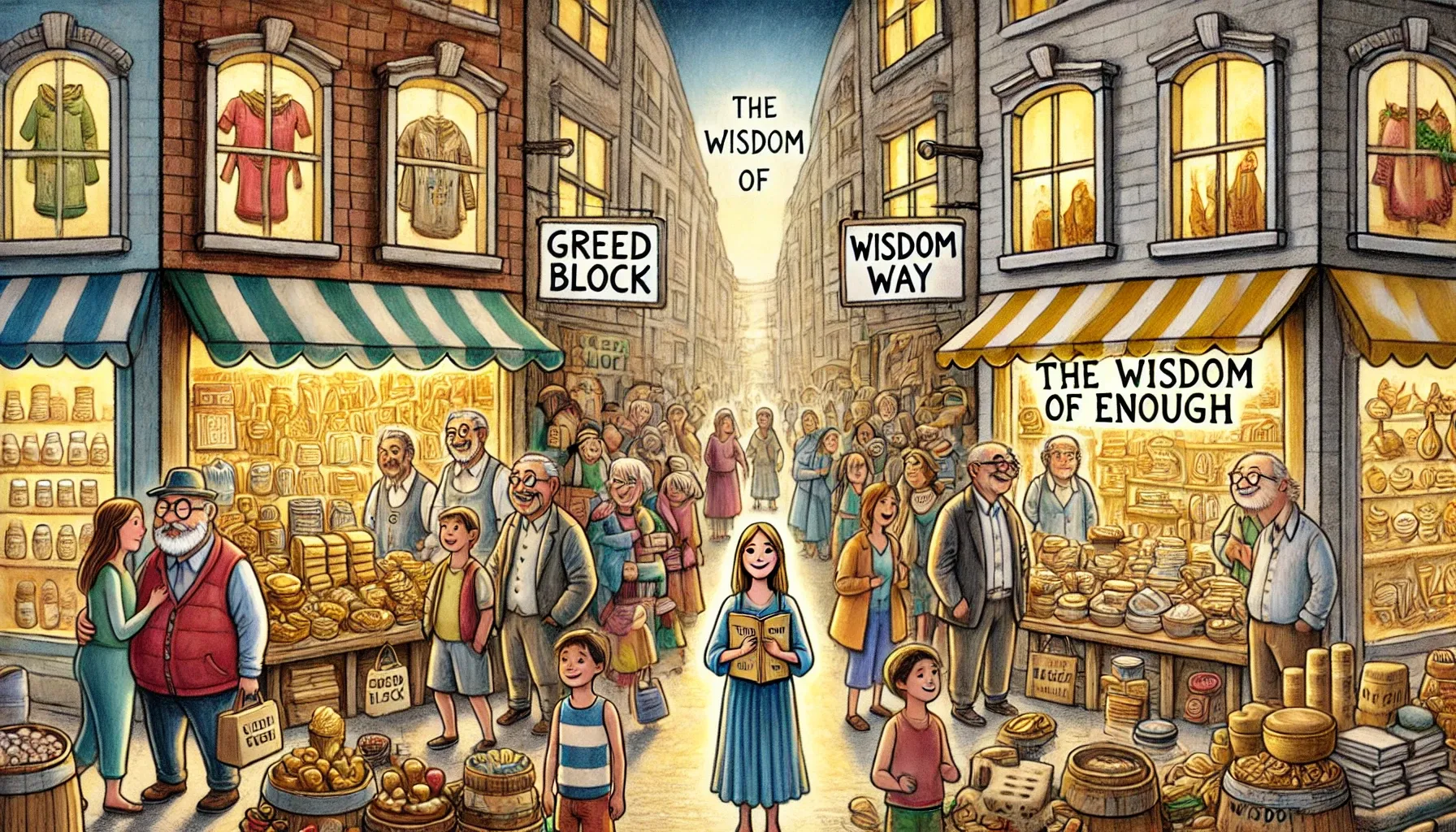In the bustling town of Prosper, a peculiar district known as Greed Block gained fame. Years ago, Greed Block was an ordinary street with small shops and family-owned businesses. However, a rumor about hidden treasures buried under the street turned this once peaceful area into a chaotic and dangerous marketplace.
It all began when a wealthy merchant named Varun started a gold shop on Greed Block. He claimed that the block was blessed, promising that anything bought or sold there would double in value overnight. To everyone’s astonishment, his prophecy seemed to work, as his wealth multiplied, attracting flocks of other merchants, eager buyers, and curious tourists. Soon, Varun’s shop turned Greed Block into a hotbed of frenzied commerce.
Among the people who joined this rush was Riya, a young woman with modest savings and a small trinket shop. Drawn by the tales of instant fortune, she poured her savings into expanding her store, even taking out a loan to buy expensive items to attract more customers. Riya hoped she’d soon become wealthy and wouldn’t have to worry about money again.
For a while, her investments paid off. Riya’s store buzzed with customers, and she found herself making far more than she ever had. Yet, she noticed something strange: every time she sold a valuable piece, a strange voice whispered in her ear, “More, Riya, more.” She felt compelled to keep buying more items and charging higher prices.
Meanwhile, other shop owners felt the same mysterious urge. They, too, raised prices and bought lavish goods to sell at steep profits. As the prices on Greed Block skyrocketed, the sense of community that had once bound the shopkeepers disappeared. People stopped trusting each other, worried they’d be cheated.
One day, Riya stumbled upon an elderly man named Anil who ran a humble bookshop at the edge of the block. Unlike the other shops, his business seemed unaffected by the frenzy. Curious, Riya asked him why he hadn’t followed the trend.
“Greed is like a fire,” Anil replied with a gentle smile. “It doesn’t just consume things; it consumes people. The more you feed it, the larger it grows, and soon, there’s nothing left of you but ash.”
At first, Riya shrugged off his words. But the next day, she noticed her shop’s shelves seemed emptier, though she hadn’t sold any more than usual. Her funds dwindled, but she felt the strange compulsion to keep buying. Over time, her debts grew, and soon, she found herself struggling to keep her shop open. She glanced at other shops on Greed Block and noticed a similar decline. Only Anil’s bookstore appeared unchanged.
As desperation set in, Riya recalled Anil’s words. She visited him again and confessed her fears, her debt, and the whispers urging her to want more. Anil nodded knowingly and offered her an ancient book called The Wisdom of Enough.
“This book holds the secret to contentment,” he explained. “But it’s only for those who truly want it.”
Desperate to break free from her greed, Riya accepted the book. As she read, she learned the importance of balance, humility, and understanding that true wealth lay in meaningful relationships and inner peace.
Riya took these lessons to heart, cleared her debts, and began running her shop with a newfound perspective. Slowly, the whispers faded, and so did the strange hold Greed Block had on her. Word of her transformation spread, and others began seeking Anil’s guidance. Over time, Greed Block shed its old reputation, becoming known as Wisdom Way—a place where wealth was measured not by gold, but by gratitude and genuine connections.
The tale of Greed Block served as a powerful reminder to everyone who heard it: chasing wealth alone could lead to ruin, but seeking wisdom could turn even the smallest fortune into a life well-lived.
Moral: When greed rules, wisdom withers; but when wisdom prevails, even modest riches flourish.






%20(1).jpg)

.jpg)
.png)





.png)
.png)


0 Comments